Crypto Scam Detector
Is This Crypto Project Legitimate?
This tool helps you identify potential red flags in cryptocurrency projects based on common scam indicators. Answer the questions honestly to see your risk score.
Scam Risk Score: 0/10
AvocadoCoin (AVDO) sounds like a fun idea: a cryptocurrency backed by real avocado farms, helping farmers in Mexico go green while you earn crypto. It’s catchy. It’s trendy. It even has a website that looks professional. But here’s the truth - AvocadoCoin isn’t a legitimate crypto project. It’s a textbook example of a pump-and-dump scam dressed up in eco-friendly packaging.
It Claims to Be Backed by Avocado Farms - But There’s No Proof
The official pitch says AVDO is tied to actual agricultural land in Mexico, with profits from avocado sales backing the token’s value. Sounds solid, right? Except no one can verify it. No public records. No farm leases. No contracts. Not even a photo of a single avocado orchard linked to the project. Mexican law is clear: foreign companies can’t own farmland under Article 27 of the Constitution. So if AVDO’s team claims to own land there, they’re either lying or breaking the law. Either way, that’s a red flag. Real agricultural blockchain projects like TE-FOOD or IBM Food Trust work with farmers through transparent partnerships - they publish audits, field reports, and supply chain data. AVDO? Nothing. Zero verifiable evidence.The ‘Smart Blockchain 4.0’ Is Made Up
AvocadoCoin’s website talks about something called ‘Smart Blockchain 4.0’ - a term that doesn’t exist outside their marketing materials. Blockchain technology didn’t even exist before Bitcoin’s 2009 whitepaper. There’s no such thing as version 4.0 of a blockchain platform. It’s like claiming your toaster runs on ‘Electricity 7.0’ - it’s nonsense. Dig deeper, and you’ll find AVDO is actually a token built on Solana, one of the most popular real blockchains. That’s not mentioned on their site. Why? Because they don’t want you to know it’s just another cheap token riding on someone else’s infrastructure. Real projects don’t hide their tech stack. They brag about it.Market Data Doesn’t Add Up - And That’s a Big Problem
Look at the numbers. CoinLore says AVDO has a $21.9 billion market cap. That would make it bigger than Ethereum. But CoinGecko doesn’t list it in the top 10,000 coins. Coinbase says the circulating supply is zero - meaning no one actually owns any AVDO - yet it’s trading with a $247K daily volume. LiveCoinWatch shows a price of $1,602.46. CoinLore says $1,553. Which one’s right? None of them. The numbers are inconsistent because they’re being manipulated. This kind of chaos is classic for pump-and-dump schemes. Scammers create fake trading volume using bots. They inflate prices with fake news. Then they sell their holdings at the peak while new buyers get stuck holding worthless tokens. The all-time high of $1,601.59? That’s not a milestone - it’s the peak before the crash. And it’s already down 9% since then.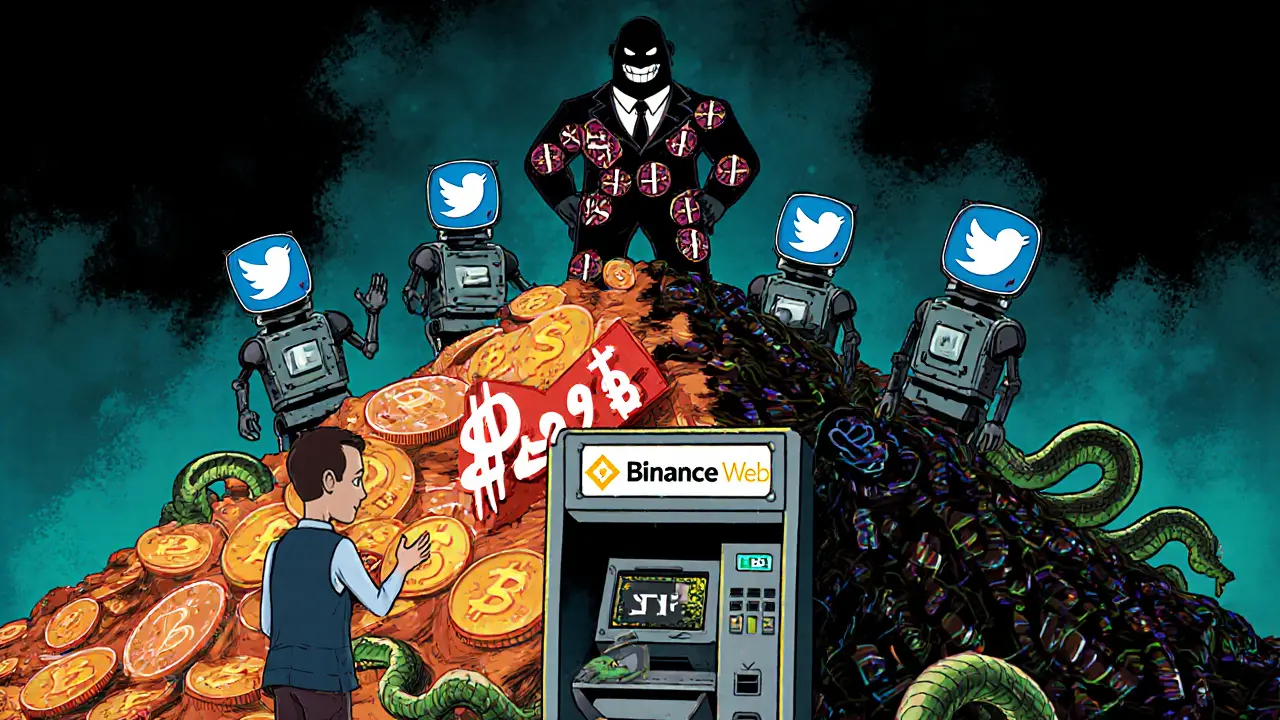
They Claim 20+ Years of Blockchain Experience - But That’s Impossible
One of the most jaw-dropping claims in their press release is that the team has ‘been at the forefront of merging blockchain with IoT for over two decades.’ Blockchain didn’t exist before 2009. You can’t have 20 years of experience in something that didn’t exist until 15 years ago. MIT’s Blockchain Research Director called this claim a ‘red flag.’ Stanford’s professor called it ‘deliberate deception.’ These aren’t opinions - they’re facts. If a project lies about its team’s history, what else are they lying about? The land? The technology? The profits? Everything.No Whitepaper. No Code. No Developer Activity
Legitimate crypto projects publish whitepapers. They open-source their code on GitHub. They have active developer communities. AVDO has none of that. As of mid-2024, there’s zero official GitHub repository. No API docs. No developer tools. No technical roadmap. No updates since launch. Meanwhile, Reddit users who tried to buy AVDO report withdrawal issues. One said it took 17 days just to get their money out. Another found out their account was frozen after depositing $5,000. The official Telegram group had over 2,000 members at launch. Now it’s under 1,250. The Twitter account? 87% bot followers, according to HypeAuditor. That’s not a community - it’s a fake audience.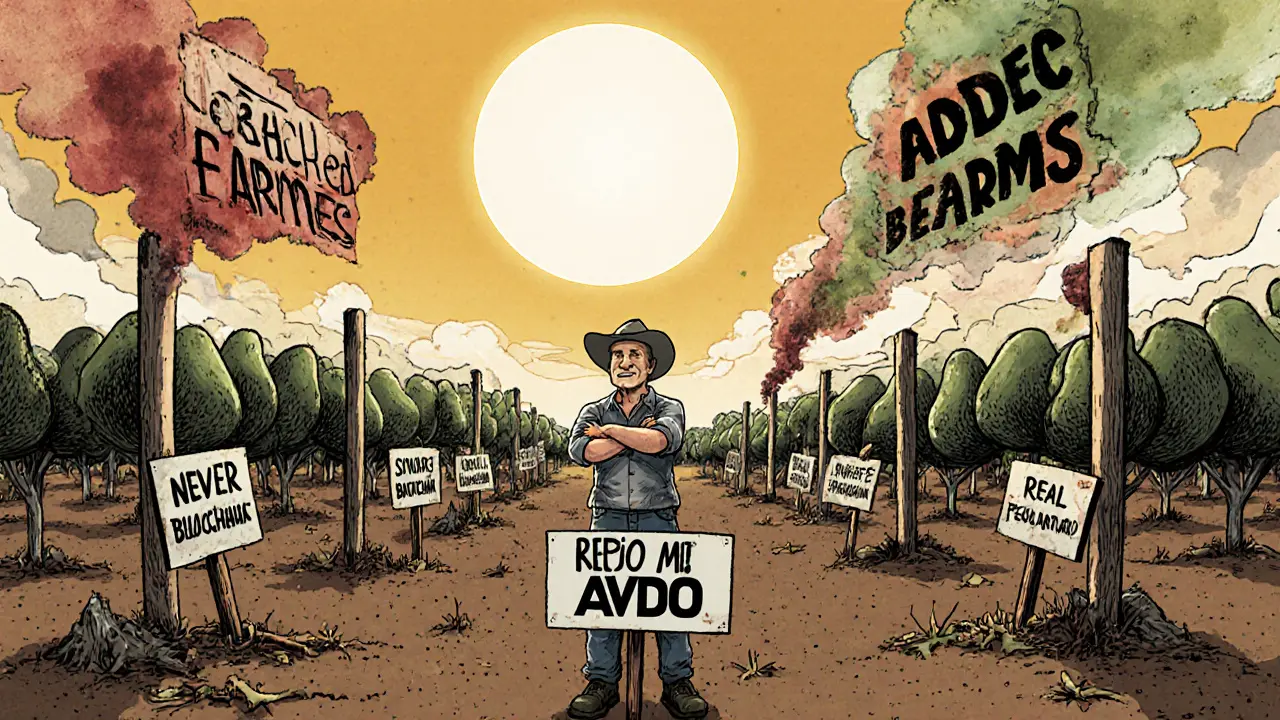
Everyone Is Warning People Away
This isn’t just one person’s opinion. The entire crypto community is sounding the alarm. - Trustpilot has 12 reviews. Average rating: 1.2 out of 5. Most complaints: ‘impossible claims’ and ‘can’t withdraw.’ - Reddit’s r/CryptoCurrency thread on AVDO has over 1,200 upvotes on a post calling it a scam. - CoinGecko’s community section shows 92% negative sentiment. - Binance doesn’t list it on its main exchange - only through its Web3 wallet, which is a warning sign. They know it’s risky. - The U.S. SEC issued a warning in June 2024 about ‘asset-backed tokens making unsubstantiated claims’ - AVDO fits that description perfectly. Even the avocado farmers in Michoacán, Mexico - the very people AVDO claims to help - say they’ve never heard of it. One verified farmer on Telegram wrote: ‘They never contacted us. Their whole Mexico story is fake.’Why Does This Keep Happening?
Scammers target niche, emotional industries - agriculture, climate, health - because people want to believe they’re doing good while making money. ‘Buy AVDO to save the planet’ sounds better than ‘Buy this coin to get rich quick.’ But the math never works. A $21.9 billion market cap for a token tied to avocado farming? The entire global avocado market is worth about $15 billion. You can’t have a crypto token worth more than the entire industry it claims to support. That’s not innovation - it’s fraud.What Should You Do?
If you’ve already bought AVDO - stop trading it. Don’t add more money. Withdraw what you can, even if it’s at a loss. You’re not losing out on a future star - you’re cutting your losses on a scam. If you’re thinking about buying - don’t. This isn’t investing. It’s gambling with rigged odds. There’s no team, no tech, no transparency, no future. The only thing growing here is the number of people who’ve lost money. Real crypto projects don’t need hype. They don’t need fake market caps. They don’t need impossible claims. They build. They ship. They prove. AVDO does none of that. This isn’t the future of farming. It’s the future of regret.Is AvocadoCoin (AVDO) a real cryptocurrency?
No, AvocadoCoin is not a real cryptocurrency in the legitimate sense. It lacks a whitepaper, open-source code, verifiable team, or real-world asset backing. Its market data is inconsistent, its claims are scientifically impossible, and it has been flagged by blockchain researchers as a high-risk scam. It exists only as a speculative token designed to attract buyers through misleading marketing.
Can I buy AvocadoCoin on Coinbase or Binance?
You cannot buy AVDO on Coinbase’s main exchange - it’s not listed there. Coinbase only shows trading data for AVDO through its Web3 Wallet, which connects to decentralized exchanges. Binance also doesn’t list AVDO on its centralized platform. It’s only available through third-party DEXs, which are riskier and less regulated. This is a red flag - major exchanges avoid listing tokens with no transparency.
Why does AvocadoCoin claim to be backed by avocado farms in Mexico?
The claim is a marketing tactic to make the token seem legitimate and emotionally appealing. But it’s false. Mexican law prohibits foreign entities from owning farmland. No public records, contracts, or farm partnerships have been verified. Even avocado farmers in Michoacán - the region mentioned - confirm they’ve never been contacted by the project. This is a fabricated story to lure investors.
Is AvocadoCoin built on Solana?
Yes, according to CoinLore and blockchain explorers, AVDO is a token on the Solana blockchain. But AvocadoCoin’s own website falsely claims it runs on ‘Smart Blockchain 4.0,’ a non-existent platform. This contradiction is intentional - they hide the real tech to avoid scrutiny. Building on Solana makes it easier to create and pump the token, but it doesn’t make it legitimate.
What happened to AvocadoCoin after its launch in June 2024?
After its June 19, 2024 launch, AVDO saw a short spike in price and volume, then rapidly declined. Trading volume dropped 79% within a month. The Telegram group lost nearly 40% of its members. No roadmap milestones were delivered. The project stopped updating its website and social media. Experts classify it as a ‘high-risk token exhibiting classic scam indicators.’ There’s no evidence it’s still active beyond pump-and-dump cycles.
Should I invest in AvocadoCoin?
No. Investing in AVDO is not investing - it’s gambling with near-certain loss. Every red flag is present: fake claims, impossible experience, no code, no transparency, and widespread warnings from experts and users. The only people who profit are the scammers who created it. Don’t be the last one holding the bag.
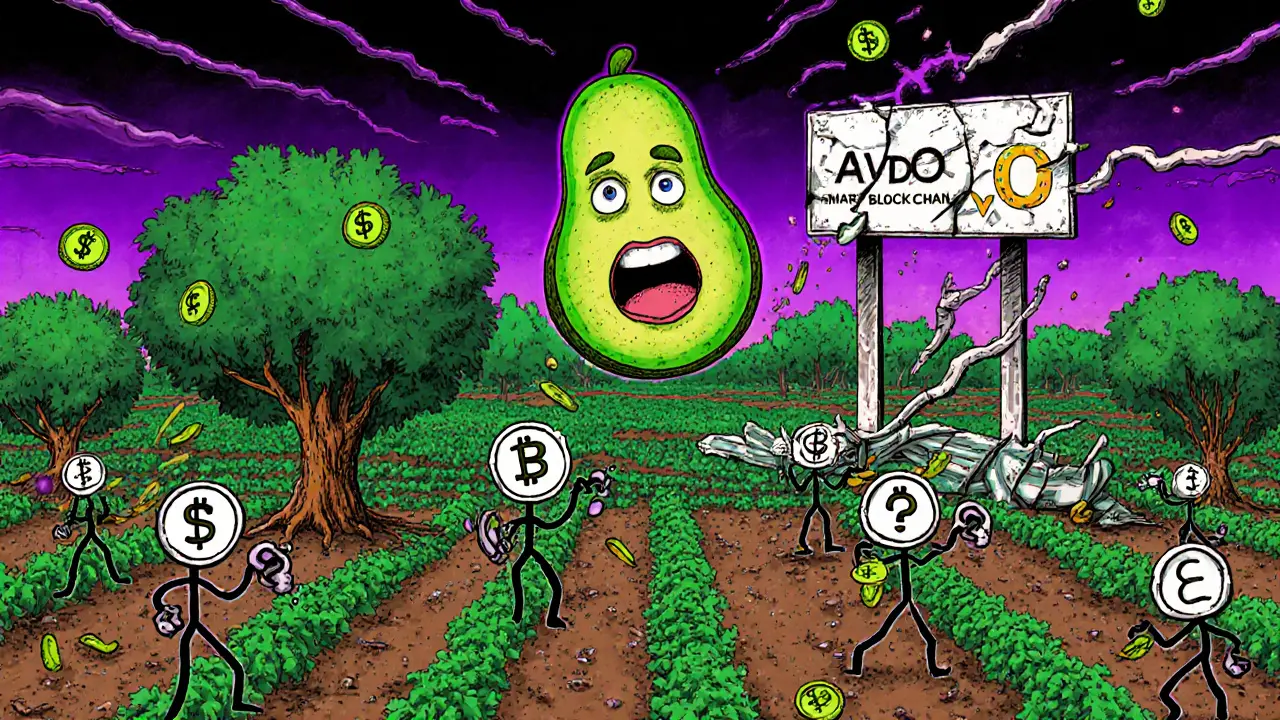
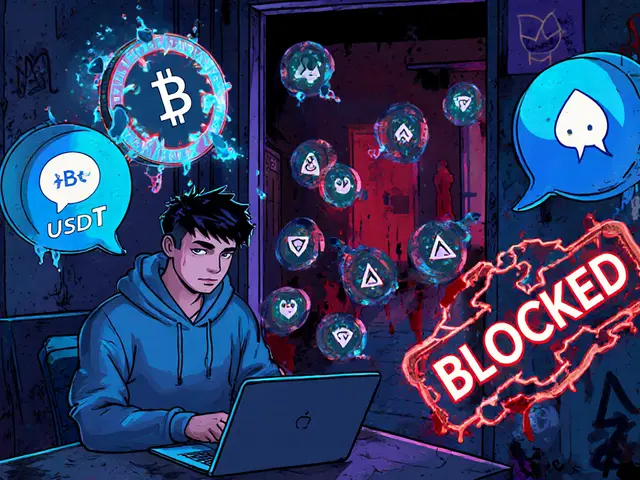
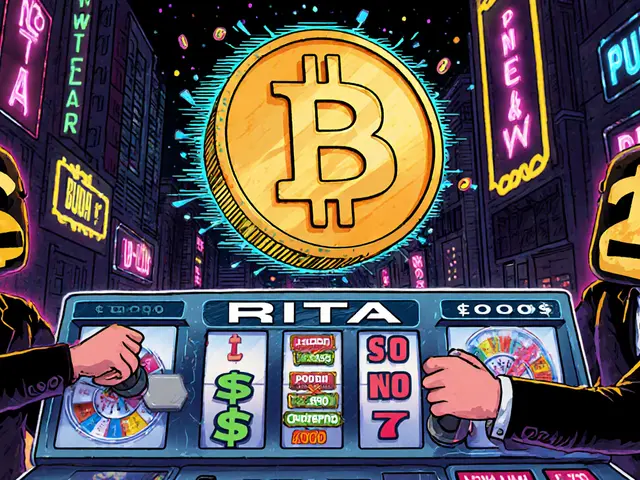
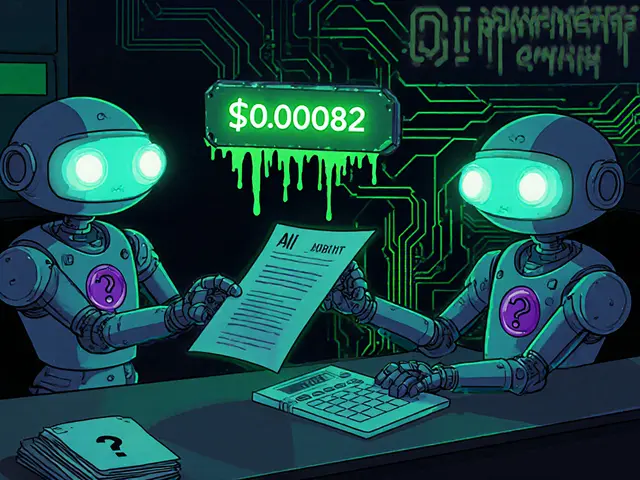

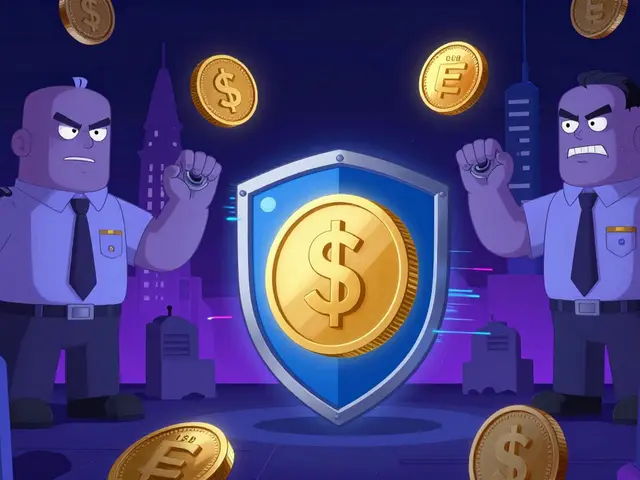
Brian Gillespie
Don't touch this with a 10-foot pole.